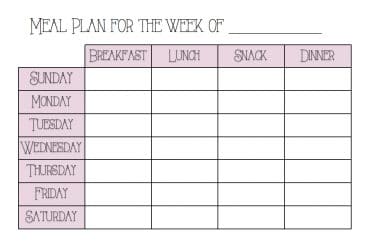Dominik is a terrible sleeper. The first several months of his life, he followed a pretty typical routine of waking every two or three hours to eat. But this continued well past his first birthday. And he didn’t just eat a bit and then go back to sleep, there were many long nights of endless hours of breastfeeding. It was also hard to get to get him to sleep and every few months we had to find a new routine that worked. For a while I had to use a baby carrier and walk him to sleep, or rock him in the rocking chair and breastfeed, or walk him around in a stroller, or lay down while breastfeeding. Most of the time I had to be close to him or breastfeeding him to get him to stay asleep. And there had to be complete silence. Let’s just say that I am now fully aware of every loud car that resides in my neighborhood.
At first, I was doing pretty well. I was tired, very tired, but I figured this was all typical baby behavior and that it would pass. Then, I blamed teething. But just after his first birthday, when all his teeth were in, I started to feel like I was going crazy. I hadn’t slept longer than three hours at a time in over a year and had even less time to myself. My husband tried to help, but Dominik was very stubborn that I be the only one to get him to sleep. There were many nights that I considered letting him cry and even more nights that I cried myself.
I felt alone, exhausted, and burnt out.
Well-meaning friends, family, and doctors assured me that this was not normal and that I should just let him cry. He needed to learn to sleep and it was my job to train him. I couldn’t help but be afraid that I was potentially causing life long sleep problems for him. Why was it so hard for me to leave him to cry? I had credentials in child development, why was it so hard for me to understand? Where had all that knowledge gone?
But then, at my darkest, I heard what I needed to hear: to trust my instincts and that every child was different. So I stepped back, relaxed, and utilized my knowledge. This was important so I’ll say it again:
Every child is different.
Babies are not born with any concept of day or night or naptime or routines. Some will sleep through the night, others will wake frequently. Humans naturally go through many sleep cycles throughout the night and periods of light sleep occur every few hours. Some children, like my son, just need a bit of help getting back to sleep. And babies, especially those that are breastfed, digest quickly and are hungry more often.
Babies are children also go through so many changes in their first years of life. All of this physical and mental development can cause sleep trouble. Mental leaps, growth spurts, and teething can all make sleeping a bit more difficult for babies, which is also why many are suddenly ravenous all night. Mental leaps cause distractions during daytime feeding, growth spurts require extra calories, and teething can cause discomfort that is alleviated by sucking.
It is also important to note that babies and young children need physical touch for proper development. That’s why touch is considered a need, just like food and warmth. When babies are left to “cry it out”, their needs are not being met. Maybe they are hungry, or cold, or overtired, or wet, or just want to be close to you. But these are all truly needs for a baby and leaving them alone to cry is showing that their needs will not be met. Studies have shown elevated levels of cortisol (the stress hormone) in babies who have “cried it out” long after they have stopped crying. Of course, it is ultimately up to the parent to decide on sleeping methods, trusting your instincts are always the best bet. My instincts were telling me to hold little Dominik, so we spent many long hours cuddling.
Dominik is starting to sleep better, slowly, but there is just beginning to be light at the end of the tunnel.
- Swaddle: Swaddling helps to prevent the “startle reflex” from waking a baby up. It can also provide some comfort for babies who like to be held as it can mimic the feeling of being in the womb
- Avoid late naps: Sometimes this is hard for us, especially if Dominik fought his normal nap time. But, depending on the age of the child, keeping baby awake from a certain time until bedtime can make at least the first part of the night a bit easier. Remember that younger babies will nap more and closer to bed time than older children.
- Safe cosleeping: This is what helped us the most. If Dominik wanted to breastfeed, all I had to do was roll over and latch him on. If he wanted a snuggle, I was right there. This kept both of our wake times shorter, making it easier for us to get to sleep. No matter what the age of the baby, it is so important to co sleep safely. This means, that there is no risk of falling (putting the mattress on the floor is helpful), no blankets or pillows around the baby, and the surface is firm. It is also important that you and your partner are completely sober. Safe co-sleeping can also mean simply having a bassinet or crib in the room with you, so bed sharing is not the only option. Do your research on safe co-sleeping before trying it.
- Routine: Having a nighttime ritual can help babies and children of all ages relax and make the mental shift towards sleep time. This can include a bath, book, pajamas, brushing teeth, some soft music, etc. But sticking to a nighttime routine helps a ton to get Dominik to sleep.
- Baby massage: Think about how relaxed you are after a massage. The same principle applies to babies and children. Massaging with something gentle like coconut oil not only moisturizes the skin, but it relaxes their muscles and eases their minds.
- Make smart food choices: Babies under 6 months only need breastmilk and/or formula. In fact, breastmilk changes throughout the day and can help get babies to sleep. But older babies and children who eat solid food should avoid sugary foods. Foods like almond butter and bananas are great pre-bed snacks.
- Be kind to yourself: This is the most important. Take time to yourself when you can. If you have a partner, take turns having some time to recharge and share responsibilities. Take full advantage of nap and sleep time. This means that this time should be used to nap, sleep, take a bath, read, or watch TV. Seriously, relax.
Some days/nights will be worse than others. We are going through a particularly brutal week (it’s taken 4 hours to get him to sleep each night). There will always be well-meaning advice, but when it comes down to it, you know your baby best. So long as your baby is loved, fed, safe, and warm, you are doing an awesome job. And remember:
Every baby is different and trust your instincts.






